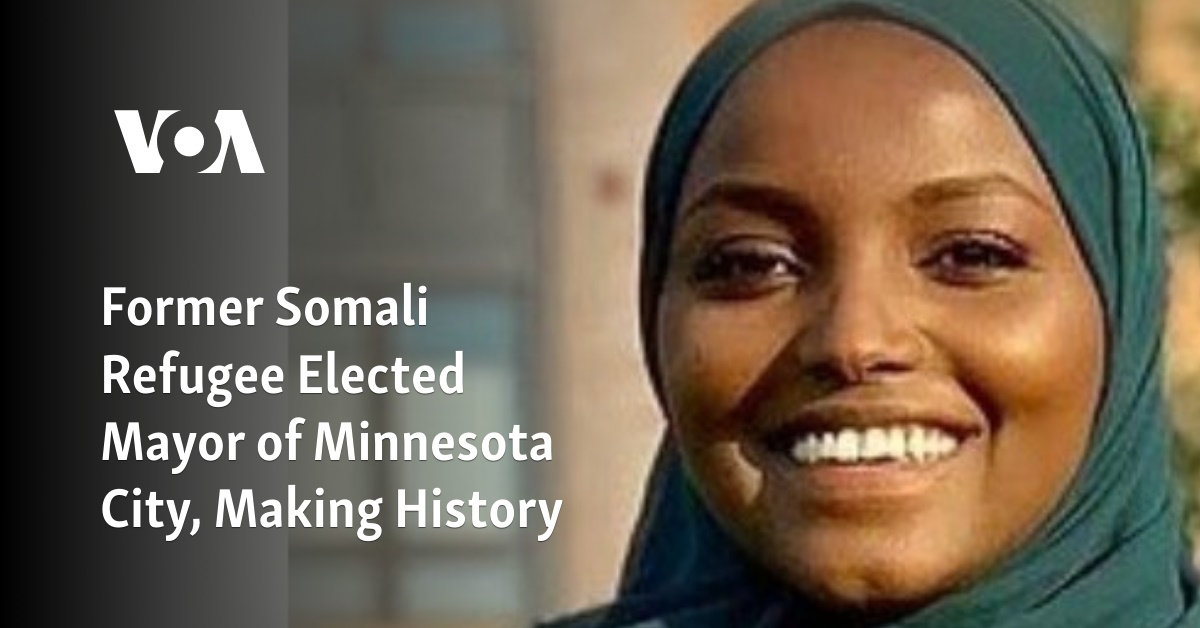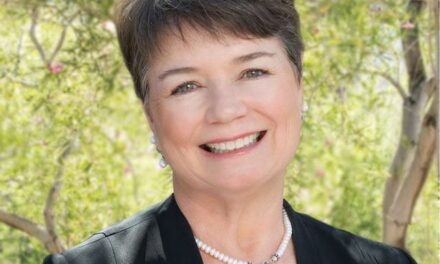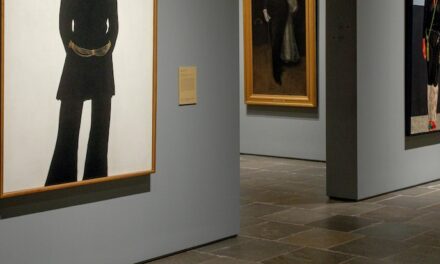
MINNEAPOLIS, MINNESOTA —
Voters in the Minnesota city of St. Louis Park elected Nadia Mohamed, a 27-year-old Somali-American, as the city’s first Black, first Somali, and first Muslim mayor Tuesday night.
The election results show that Mohamed easily defeated Dale Anderson, a former banker and continuing education teacher, by a margin of 58% to 41%.
“I am very happy to win as Somali-American, Muslim, migrant and Black,” she told VOA’s Somali Service. “I would say thank you to all of those who supported me in this. It is our victory.”
Maine State Rep. Deqa Dhalac was the first Somali American to serve as mayor of an American city in 2021, when South Portland’s six-member council selected Dhalac for the role. Mohamed becomes the first Somali mayor in American history elected directly by voters.
“I have lived in this city for 18 years,” said Mohamed. “I grew up and finished my school here, so it was easy for me to get elected because people know me.”
An early start
As refugees, Mohamed’s family moved to St. Louis Park when she was 10 years old.
Mohamed says her aspirations for elected office started with routine recreational walks when she was young.
“I would walk around the city hall and could only see the portraits of city’s former mayors on the walls. All of them were white men. I only saw two women. None of them looked like me,” she said. “But now, I am very happy, and it is amazing to see my photo among these mayors, knowing that — let us say, 50 years from now — it will be still here.
“Muslim, black and migrant girls will have a better opportunity to see one of them among these mayors,” she said.
Mohamed in 2019 was elected to the St. Louis Park City Council at the age of 23, making her the youngest individual to hold the position in the 170-year history of the Minneapolis suburb.
Before public office, she also held a position at the Minnesota Department of Human Services as a diversity, equity and inclusion specialist.
Predominantly white St. Louis Park, a city of roughly 50,000, has seen the number of people of color more than double over the past two decades, reaching 20% of the population. Some 10% of residents are foreign-born, and the average household income is $87,639.
The city’s mayor is also its manager, responsible for executive-level operations. The mayor also chairs the City Council.
Mohamed will succeed Jake Spano, who announced in March that he would not seek reelection and endorsed Mohamed.
Other Somali-American successes
In nearby Minneapolis on Tuesday, another Somali-American, Ward 6 City Councilman Jamal Osman, defended his seat, receiving 44.6% of the vote, followed by Kayseh Magan with 30.1% and Tiger Worku with 21.8%.
Speaking to his supporters after the election results were in, Osman said he was happy and felt grateful to be trusted by Ward 6 residents for three consecutive years.
“I’m super excited,” Osman said. “We have a lot of work going on. We have a lot of work to do.”
In 2022, at least eight Somali-American women won races in U.S. midterm elections.
The success of Somali-American female candidates in the U.S. eclipses that of female aspirants for elected office in Somalia.
Female politicians in Somalia are so disenfranchised that in 2016, Somalia’s federal and regional leaders had to start allocating a specific quota of seats in parliament. But women still were never given the opportunity to get the 30% quota promised.
In 2016, Somali women occupied 24% of the 329 seats in the two houses of parliament. In 2022, female candidates secured 20%, well short of the 30% quota.
Mohamed Olad Hassan reported from Washington. This story originated in VOA’s Somali Service.




